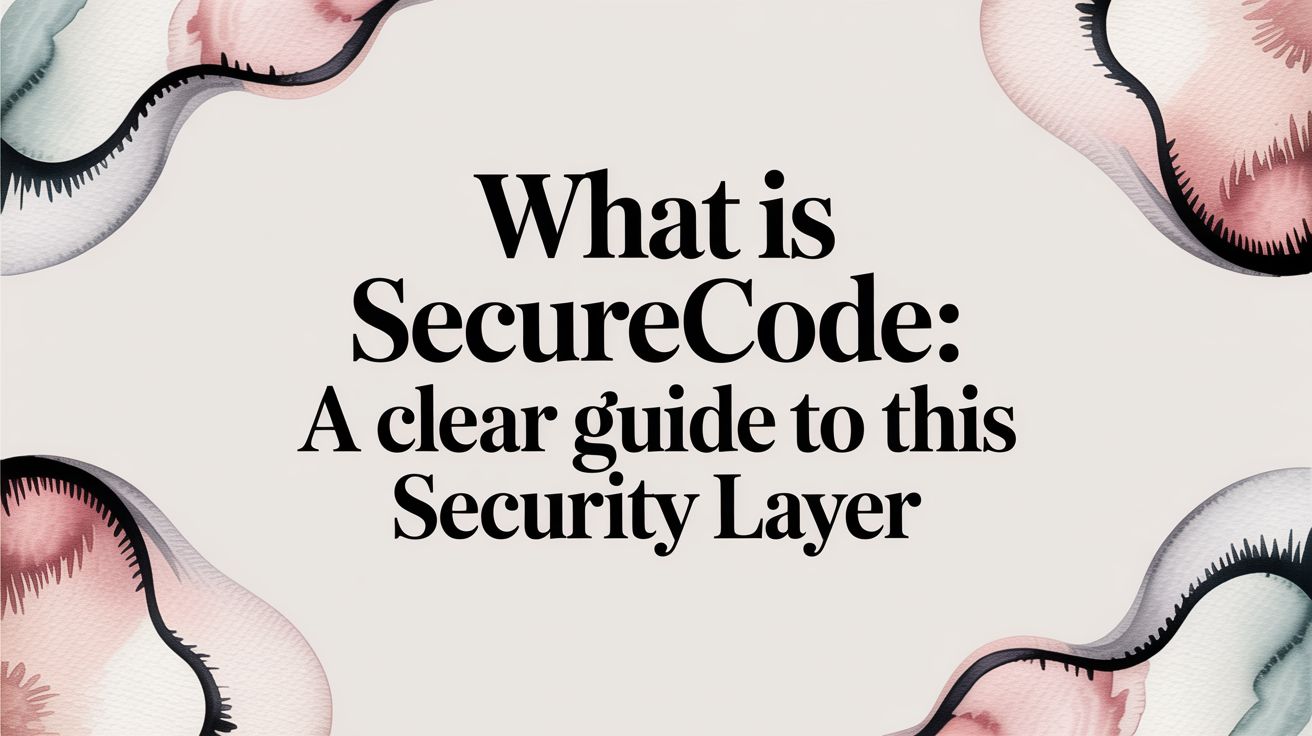
Disputing chargebacks can be complex and challenging for both cardholders and merchants alike.
Understanding the time limits and procedures involved in disputing transactions is crucial for effectively managing chargeback disputes and protecting against financial losses.
In this expert guide, we are going to understand chargeback time limits, explore key factors that influence dispute resolution timelines, and provide actionable insights for navigating the chargeback process with confidence.
From the initiation of chargebacks to merchants' responses and the intricacies of managing disputes, this guide equips readers with the knowledge and strategies needed to navigate chargebacks effectively.
When to Chargeback a Transaction?
As a customer, understanding when to initiate a chargeback can be pivotal in resolving disputes with merchants effectively.
Chargebacks serve as a safety net provided by banks and payment processors, allowing consumers to dispute unauthorized or fraudulent transactions, as well as those resulting from goods or services not delivered as promised.
1. Verifying Transactions
Before considering a chargeback, it's essential to review your transaction history thoroughly.
Ensure that the charge in question wasn't made by an authorized user or a family member who might have access to the payment method.
Additionally, cross-check receipts or confirmation emails to validate the details of the purchase and confirm the chargeback reason if disputing a charge.
2. Identifying Discrepancies
If you notice any discrepancies, such as incorrect billing amounts, unauthorized charges, or purchases for goods or services not received, it may be time to consider filing a chargeback.
These discrepancies could indicate potential fraud or merchant error, warranting further investigation.
3. Contacting the Merchant
In some cases, reaching out directly to the merchant can help resolve issues more efficiently than initiating a chargeback.
Contact the merchant's customer service department to explain the problem and request a refund or resolution.
Keep records of all communication with the merchant for reference.
4. Time Limit Considerations
It's crucial to be aware of the time limits associated with chargeback requests.
Depending on the card network and the issuing bank, there are specific time frames within which you must file a chargeback after noticing a problem with a transaction.
Failure to act within these time limits could result in the inability to dispute the charge.
5. Bank Procedures
Each bank or financial institution has its procedures for processing chargeback requests.
Contact your bank or card issuer to understand the specific steps involved in filing a chargeback and any documentation required to support your claim, including understanding any applicable chargeback reason code.
Adhering to your bank's guidelines streamlines the chargeback process and increases the likelihood of a favorable outcome.
By understanding when to initiate a chargeback and following the appropriate procedures, customers will effectively protect themselves against unauthorized charges and resolve disputes with merchants promptly.
How Much Time do Cardholders have to Dispute Transactions?
Cardholders are provided with a specific window of time within which they have to dispute transactions on their credit or debit cards.
This time limit varies depending on the card network, the issuing bank, and the type of transaction involved.
1. Credit Cards
For credit card transactions, cardholders generally have up to 120 days from the date of the transaction to dispute it.
This time frame allows ample opportunity for cardholders to review their billing statements, identify any discrepancies, and take appropriate action to resolve disputes.
2. Debit Cards
The time limit for disputing transactions on debit cards may vary depending on the card network and the policies of the issuing bank.
In most cases, cardholders are provided with a similar timeframe as credit card transactions, typically up to 120 days from the date of the transaction.
Adhering to Time Limits
Cardholders must adhere to the specified time limits for disputing transactions, often governed by the card issuer's guidelines on credit card chargeback time.
Failing to initiate a dispute within the designated timeframe may result in the inability to challenge the charge and seek a refund.
Therefore, it's essential to review billing statements promptly and report any unauthorized or fraudulent transactions as soon as they are identified.
By understanding the time limits for disputing transactions on credit and debit cards, cardholders will take proactive steps to protect themselves against unauthorized charges and ensure the timely resolution of disputes.
Time Limit to File a Chargeback
When it comes to filing a chargeback, both cardholders and merchants are subject to specific time limits to initiate the dispute process.
Understanding these time limits is essential for ensuring that disputes are addressed on time and following the rules set forth by card networks and financial institutions.
1. Cardholder Time Limits
For cardholders, the time limit to file a chargeback typically ranges from 60 to 120 days from the date of the transaction, depending on the card network and the type of transaction involved.
It's crucial for cardholders to be aware of this timeframe and to initiate the chargeback process promptly if they encounter unauthorized charges, billing errors, or issues with goods or services received.
2. Merchant Response Time
Once a chargeback is initiated by the cardholder, merchants are given a specific window of time to respond to the dispute and provide evidence to support their case.
This response time is around 20 to 30 days, but it varies depending on the card network and the complexity of the dispute.
Importance of Timely Action
Both cardholders and merchants must adhere to these time limits to ensure that disputes are resolved efficiently and fairly.
Failing to initiate a chargeback within the designated timeframe or to respond to a chargeback promptly can result in the forfeiture of rights to dispute the transaction or provide evidence in support of the dispute.
Communication and Documentation
Effective communication and proper documentation are essential for both cardholders and merchants during the chargeback process, especially when a dispute arises over a specific chargeback reason.
Cardholders should keep records of all communication with their bank or financial institution regarding the dispute, as well as any relevant documentation supporting their claim.
Likewise, merchants should maintain thorough records of transactions, shipping details, and customer communications to support their defense against chargebacks.
By understanding the time limits to file a chargeback and respond to disputes, both cardholders, and merchants will navigate the chargeback process more effectively and work towards a resolution that is fair and equitable for all parties involved.
What is 540 Days Chargeback Rules?
The 540 Days Chargeback Rules pertain to the time limits for initiating a chargeback with your bank for credit or debit card transactions.
These rules, established by major card networks such as Visa and Mastercard, outline the timeframe within which cardholders can dispute transactions and seek a refund or resolution.
General Rule
Under the 540 Days Chargeback Rules, cardholders typically have up to 540 days from the original transaction date to file a chargeback for most types of purchases.
This extended timeframe provides consumers with a significant window of opportunity to address issues that may arise with their transactions.
120-Day Awareness Limit
While the overall time limit is 540 days, there is a crucial caveat known as the 120-day awareness limit.
It means that cardholders must file the chargeback within 120 days of becoming aware of a problem with the transaction.
This could include situations where goods or services are not received, they are defective, or there are incorrect charges on the account.
How long does a merchant have to respond to a chargeback?
Merchants typically have approximately 20 to 30 days to respond to a chargeback after it has been initiated by the cardholder.
This timeframe varies slightly depending on the card network and the specific circumstances of the dispute.
Merchants must adhere to this deadline and provide compelling evidence to support their case to effectively challenge the chargeback and potentially avoid a loss of funds.
How quickly do you need to respond to a chargeback?
It is essential to respond to a chargeback as quickly as possible, ideally within a week of receiving notification.
Timely responses can significantly improve the chances of successfully challenging the chargeback and recovering funds.
Delays in responding may result in missed opportunities to present compelling evidence related to the chargeback reason, potentially leading to a loss for the merchant.
Therefore, prompt action is crucial to effectively manage chargeback disputes and protect against financial losses.
Detrimental Factor in Chargeback Time Limit
Several factors, including the chargeback reason code, influence the time limits and overall resolution of disputes.
Understanding these factors is crucial for both cardholders and merchants to navigate the chargeback process effectively.
Here are some key detrimental factors that can impact chargeback time limits:
Card Company Rules
The rules and regulations set forth by card companies, such as Visa, Mastercard, and American Express, play a significant role in determining chargeback time limits.
These rules sometimes vary depending on the card network and impact the timeframe within which chargebacks must be initiated and resolved.
Nature of the Purchase
The type of goods or services purchased also affects chargeback time limits.
Certain transactions, such as travel bookings or custom-made items, have longer dispute windows due to the complexity or extended delivery timeframes associated with these purchases.
Reason for Dispute
The reason behind the dispute influences chargeback time limits.
Issues such as non-delivery of goods, defective products, or fraudulent charges have different timelines for initiating chargebacks and providing evidence to support the claim.
Customer's Bank Policies
The policies and procedures of the customer's bank always impact chargeback time limits and the overall dispute resolution process.
Banks have specific guidelines for handling chargebacks, including deadlines for filing disputes and responding to merchant inquiries.
Merchant Return Policies
The return policies of the merchant also affect chargeback time limits. If a merchant offers a generous return policy or extends the timeframe for returns and refunds, cardholders have more flexibility in disputing transactions within a reasonable timeframe.
Laws and Regulations
Local laws and regulations governing consumer rights and financial transactions also influence chargeback time limits to some extent.
Depending on the jurisdiction, there may be statutory provisions that define the rights and obligations of both cardholders and merchants in the event of an Amex dispute.
Documentation and Evidence
The availability of documentation and evidence to support the dispute can impact chargeback time limits.
Cardholders and merchants must gather relevant information, such as receipts, invoices, communication records, and proof of delivery, to strengthen their case and expedite the resolution process.
Communication and Cooperation
Effective communication and cooperation between cardholders, merchants, and banks are essential for resolving chargebacks on time.
Open dialogue and willingness to cooperate help expedite the investigation process and reach a fair resolution for all parties involved.
By considering these detrimental factors, cardholders and merchants will better understand the complexities of chargeback time limits and take proactive steps to manage disputes effectively.
Dispute Time Limits vs Response Time Limit
Understanding the distinction between dispute time limits and response time limits is crucial for both cardholders and merchants involved in chargeback disputes.
While dispute time limits refer to the timeframe within which cardholders have to initiate a chargeback, response time limits dictate the period merchants have to respond to the dispute.
Here's a concise overview:
Dispute Time Limits
- Dispute time limits represent the window of opportunity for cardholders to initiate a chargeback after noticing a problem with a transaction.
- Typically ranges from 60 to 120 days from the date of the transaction, depending on the card network and type of transaction.
- Cardholders must file the chargeback within the designated timeframe to preserve their right to dispute the transaction.
Response Time Limit
- Response time limit refers to the period merchants have to respond to a chargeback once it has been initiated by the cardholder.
- Generally around 20 to 30 days from the date of notification, although this timeframe will vary based on the card network and specific circumstances.
- Merchants must provide compelling evidence to support their case within the allotted time to effectively challenge the chargeback.
Key Points to Consider
- Dispute time limits and response time limits are distinct but interconnected aspects of the chargeback process.
- Cardholders must initiate chargebacks within the designated dispute time limits to preserve their rights.
- Merchants must respond to chargebacks within the specified response time limit, often 20 calendar days, to present evidence and challenge the dispute effectively.
- Adherence to both dispute time limits and response time limits is essential for ensuring fair and timely resolution of chargeback disputes.
Understanding the nuances of dispute time limits versus response time limits empowers both cardholders and merchants to navigate the chargeback process more effectively and protect their rights in disputing transactions.
Manage & Win Chargeback in Time with ChargePay
For merchants, managing chargebacks promptly is essential to minimize financial losses and maintain customer trust.
ChargePay offers a comprehensive solution to streamline the chargeback management process, allowing merchants to effectively respond to disputes and reclaim lost revenue.
With ChargePay's AI-powered automation, merchants will handle chargebacks efficiently and promptly, reducing the burden of manual effort and ensuring swift resolution.
By leveraging ChargePay's automated chargeback management workflow, merchants will reclaim up to 3.5 times more revenue lost to chargebacks while saving valuable time and resources.
The platform's real-time action capabilities enable merchants to respond to chargebacks as they arise, using AI-generated representments to boost their win rate.
With seamless integration with leading payment processors like PayPal, Shopify, and Stripe, ChargePay empowers merchants to protect their businesses against chargebacks and maintain a strong reputation with acquirers and issuers.
.webp)






.svg)







.svg)
.svg)
.svg)